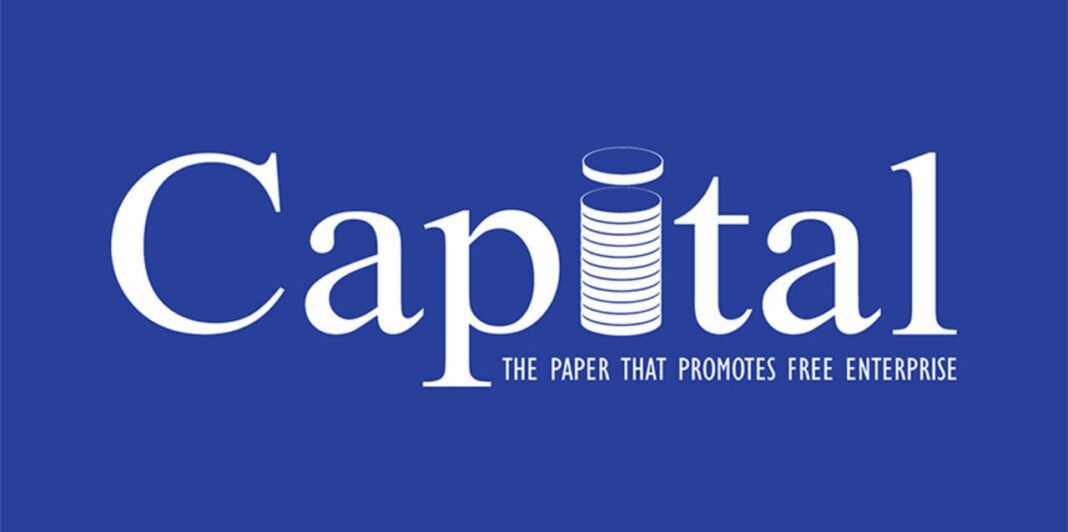On digital platforms, the rulebook seems to give free way for many online shops to multiply unseen without tread license. Digital platforms play book lowers the gate for business entry. Though free licence tread isn’t not a new thing on commercial line, it is not equivalent to the way e-commerce platform flaunt taking it as free offerings leverage for growth hook. The digital world has accelerated free licence business beyond the level of history record.
However, it is true that free license business “concept” has roots with older informal economies like street vendors, gullet chercharies (spot sellers a designated market field), Sunday (weekend) market stalls and local service providers at different corners who’ve long operated outside formal systems.
Nonetheless, online digital platforms have of course lowered the gate to business entry. This make it so much easy for anyone having cell-phone to exchange product, service, or any bold items to launch without the red tape like licence requirement. The shift from traditional infrastructure need to the skill required in manipulating digital information highlights the new normal.
Somebody can easily operate without a formal license. This might feel like freedom that bypass traditional licence related funnels especially in emerging e-markets where regulation can be regarded as unduly pinching slow moving or bureaucratic. It’s like trading old rulebook for a running free start. Such license-free business operators often feels free of barriers, to speeds up business, and let go entrepreneurial ideas hit the ground easily.
These days, E-markets in Ethiopia and other area are booming driven [U1] [U2] by digital transformation, mobile money, and a surge in local innovation. Just with a smartphone and internet or Wi-Fi access, someone can open a shop, to reach a global audience, and start earning with no permit, or storefront requirements. This is a critical shift in entrepreneurship.
However, this ease of business entry, shifts the competitive environment to complex battleground. It really creates a tricky business landscape contrary to fair competition platform where some players indulge in foul play offsite and others abide by the rules within the normal play field.
Instagram shops, TikTok live sales, and WhatsApp catalogues let anyone bypass physical inspections or business licenses requirements and inspection for some period. A seller in Addis can ship to Miami without legally registering a company—until payment processors (PayPal, Stripe) flag “suspicious activity.” Sometimes they don’t even worry about the payment transaction as it may pass under the crypt currency like networks. But once the system notices these foul payers, formalization is no longer an option—it’s a matter of survival or otherwise.
Actually the game rule hasn’t changed officially but ‘’operate informally until forced to formalize’’ is a hidden digital business players motto that amplify opportunity in the game they are playing. This is a show case how the gritty edge of innovation often may outpaces regulation.
The “Free License Trade” – from street markets to TikTok like shops where many operate quietly, till tax radar put them in the regulation light is rampant to day. Governments often turned a blind eye until scale of transaction or the grumble from other side draw attention.
For some, it’s a lifeline; for others, it’s strategic. The most successful players on digital platforms operate by a different set of rules compared to traditional marketing. The winners in the game are the ones who know how to smartly play with the new rule. They optimize until some benefit size and gamble till the other side knew and come with tax regulation order.
Side hustles and full-time ventures now coexist on the same platforms, with formal and informal sellers competing for the same business attention. This decentralized, low-business gate model empowers millions—but it also challenges traditional systems of regulation, taxation, and labour protection.
The game is faster, more dynamic, and often thrives on authenticity, virility, and direct engagement rather than traditional trade ground rule of licence. Here’s how the new rules work in the untaxed wild beast of social media marketing,
A digital platforms resemble a kind of anarchy in attention seeking. Here, the cleverness trumps legacy and raw authenticity. It takes to choose the Right Platform(s): Instagram – Best for visually appealing products, lifestyle branding, and influencer collaborations. TikTok – Ideal for viral short-form videos, trends, and engaging younger audiences. Facebook – great for broader reach, community building (groups), and detailed ad targeting.
Platforms like TikTok, Instagram, and Telegram let you monetize overnight—with no business license, storefront, or even a website needed. The “Fake It till tax make It” advantage. may skip compliance cost for some period. But this may or may not be a long term play.
Digital platforms have unlocked enormous economic potential, but the rules of the game creates an uneven playing field. Digital Sellers Operate in a Regulatory Gray Zone. Digital Platforms Enable “Shadow Scaling”: TikTok, Instagram, and Telegram let sellers monetize without business licenses, while payment processors (PayPal, Venmo) often don’t enforce tax reporting until known thresholds are breached.
This difference has it’s double-edged sword to dissect the business atmosphere. Some are forced to go by traditional tax rule and some to run business on tax free line. Traditional businesses carry the weight of compliance costs, licenses, and audits. But digital sellers can scale quickly, but often without legal control or tax line even may be for long-term.
The rapid growth of digital commerce has exposed a fundamental mismatch between outdated tax systems and today’s borderless, platform-driven economy. While digital businesses thrive with minimal compliance less burdens, traditional businesses bear disproportionate regulatory costs—that creates an uneven playing field that distorts competition, erodes tax bases, and undermines fair standards.
This disparity doesn’t just affect tax revenue alone, it reshapes competition, labour protections, and even consumer trust. Therefore, it shows the serious need for a new tax code design to create level ground in business atmosphere.
Thus, the need for zeroing the tension between traditional and digital business tread is critical. The wide dividing wall between the formal and informal players should be broken with new tax code designed to create level ground.
The “Fake It till tax make it” dynamic should not be the rule of the game. The reality of today’s business competition, where digital acceleration has outpaced traditional business in some sector necessitates the need for setting a new norm to level the game area. One cannot ignore the need to act fast to avoid this undulation on business road. The goal isn’t to punish digital innovation but to align rules with economic reality.
The traditional commercial code, anchored with the pre-digital presumption cannot serve, to provide equal ground for applicability in the new normal around business triangle. Those who can scale and profit while skating with digital economy unseen by the regulatory tax radar certainly benefit more. Lessons can be taken from digital tax tools practice in many areas including in free zones (e.g., Dubai’s DIFC). Otherwise it is like forcing horses and cars to race on the same track.
Such rules facilitate for inclusion of digital transaction compliance with reporting and disclosure requirements. Digital assets need to be evaluated under some regulatory frameworks as traditional securities, ensuring transparency and adherence to established national financial tax practices.
Otherwise, it alters the very fabric of fair competition, risking a system where transparent and compliant players are penalized while the defectors freely swim with no tax. For every business, tax must be fair and must run as an acceptable obligation which allow residents to claim due right as regular citizen of the land. Thus, similar dress code must be given to players in business game. Otherwise, it must be considered as a time bombs when unreported income surface during sudden audit resulting penalties in terms of fines, or even sudden frozen assets.
To bridge the gap between informal and formal economies, incentives for formalization may be applied using like tax breaks or tax holidays as a governmental incentive to temporarily reduces or eliminates taxes for consumers or business enterprises. May be using financial tools, or visibility bonuses for registered digital sellers to encourage micro-digital ecommerce to gradually come on board, into formal obligations as they grow can be implemented. Some jurisdictions offer lower VAT/GST (Goods and Services Tax ) rates or income tax holidays for newly registered digital businesses e.g., Italy’s temporary DST (Documentary Stamp Tax) exemptions for small sellers may be taken as good attraction of these foul players to come to normal playfield.
Normally storefronts, payroll taxes, and local licensing create fixed costs that digital sellers bypass. Traditional business unit’s employees pay tax benefits, while digital platforms classified workers serve at independent contracts. Anyhow reducing barriers to incentivize formalization of small online sellers may be advantageous to pull them to the normal play field.
According to IMF estimates 10-15% of potential tax revenue is lost to digital informality. Man issues disparity in enforcement, tax authorities lag behind. Thus there is a reform for AI-driven audits for high-risk digital income.
Let us save the future economy from digital hype exclusion to the inclusive, fairly competitive, and sustainable platform. Let us not allow the business playground where lawlessness and regulatory gaps flaunt and where only the unregulated win.
Enforcement gaps, especially against offshore digital platforms may push compliant players to go underground. Law-abiding businesses may deregister to compete with untaxed offshore digital rivals. Start-ups may relocate to deregulated zones. Take lesson from others practice. May be allowing tax amnesty or other means for offshore sellers to register without penalties. (e.g., Indonesia’s 2023 e-commerce) or extending data sharing platforms like Meta to e-commerce.to add-buyer and seller data with tax authorities may help law enforcement units to exercise smart approach on this line.
Allowing online market operation with little or no restrictions while the rule is heavy for business otherwise could not create level ground for all players in the game. The digital economic vehicle should not go off the road with minimal oversight. Because, if any mechanical failure is encountered in the journey, it may be hard to find suitable garage to maintain the damage and allow safe ride on businesses pavement.
Thank be yours for reading this little piece.







